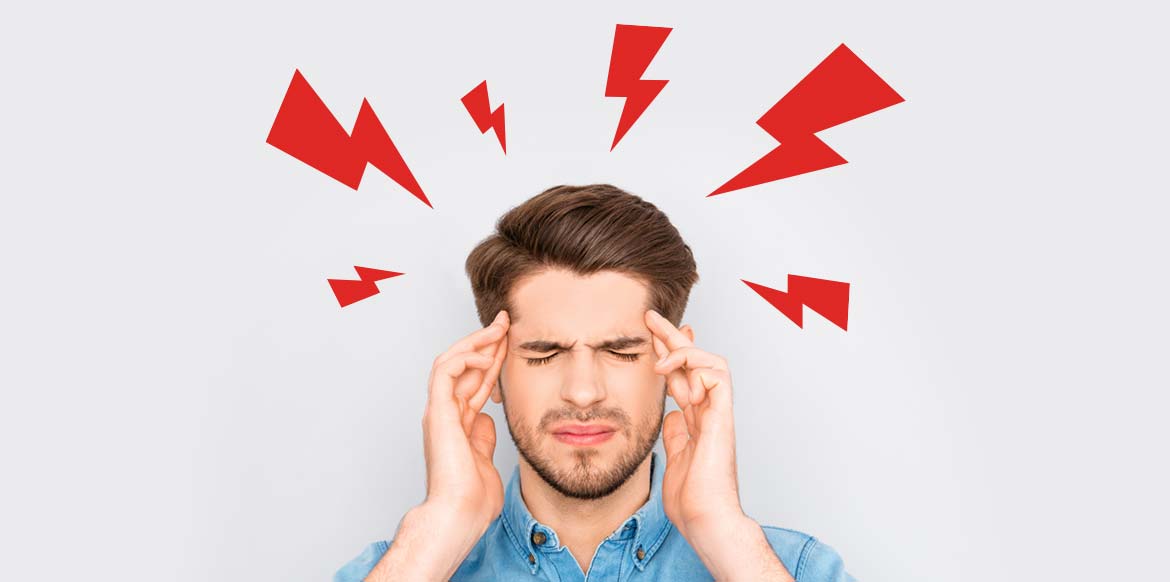Headaches are among the most common complaints worldwide. According to the World Health Organization, millions of people suffer from this unpleasant symptom every day. Sometimes headaches occur only once, for example, due to lack of sleep, fatigue, or stress. However, if the pain lasts for more than three months and occurs more than 15 days a month, doctors refer to it as chronic headaches.
This condition can significantly impair quality of life: decreased performance, irritability, sleep disturbances, and general well-being are affected. It is important to understand that chronic headaches are not a disease in themselves, but rather a signal from the body indicating a condition that requires treatment. Below, we will examine the main causes of chronic headaches, their consequences, and ways to combat them.
Causes of chronic headaches
1. Stress and emotional tension
Stress is one of the main factors in the development of chronic headaches. The modern rhythm of life is often associated with deadline pressure, numerous tasks, and anxious thoughts. The result is tension in the neck and shoulder muscles, poor circulation, and tension headaches.
When stress becomes a constant companion, the pain becomes chronic. It feels like a constricting bandage around the head and preventing concentration and relaxation. Learn to cope with stress. Breathing exercises, yoga, walks in the fresh air, and a balanced distribution of stress can help.
2. Lack of sleep
Sleep disorders are closely linked to chronic headaches. If the body doesn't get enough rest, it doesn't have time to recover. This increases the sensitivity of the nervous system, which can cause frequent pain.
In addition, insomnia or lack of sleep often accompanies migraines. Pay attention to your sleep hygiene: Go to bed and wake up at the same time, avoid using electronic devices before bed, and create a comfortable environment in the bedroom.
3. Malnutrition and dehydration
Our body depends on a regular supply of nutrients and fluids. Skipping meals, consuming too much caffeine, or not drinking enough can trigger chronic headaches. Some foods can also trigger migraines: chocolate, red wine, blue cheese, and foods containing monosodium glutamate. Eat a regular, balanced diet, drink plenty of water, and pay attention to which foods aggravate symptoms.
4. Hormonal changes
In women, chronic headaches are often associated with hormonal fluctuations. Migraines can worsen during menstruation, pregnancy, or menopause. This is due to changes in estrogen and progesterone levels, which impair the function of the nervous system and blood vessels. Discuss the problem with a doctor. Sometimes, hormonal adjustments, proper nutrition, and physical activity can help.
5. Long hours at the computer and poor posture
Modern people spend many hours at the computer or smartphone. At the same time, the neck and shoulders are tense, and the spine is strained. This leads to headaches that can become chronic over time. Take regular breaks, stretch, pay attention to your posture, and properly organize your workspace.
6. Painkiller misuse
Paradoxically, taking painkillers too frequently can lead to chronic headaches. This phenomenon is called "drug-induced headache." The body gets used to the pills, and the pain keeps coming back. Avoid painkiller misuse. If you need them too frequently, you should consult a headache doctor to determine the cause of the pain and the appropriate treatment.
7. Chronic diseases
Sometimes, persistent headaches are associated with other health problems: high blood pressure, thyroid disease, degenerative disc disease, or vascular disease. Get yourself examined and treat the underlying condition. Ignoring the symptoms can lead to serious complications.
Consequences of chronic headaches
It is dangerous to ignore chronic headaches. Over time, they can cause:
- Impaired cognitive function (memory, concentration, attention)
- Emotional burnout and depression
- Sleep problems
- Reduced quality of life and social activity
- Risk of accidents due to inattention and fatigue
How to deal with chronic headaches
- Keep a headache diary - record frequency, duration, and possible triggers. This will help the doctor find the cause
- Follow a daily routine - regular sleep, nutrition, and physical activity improve overall well-being.
- Avoid triggers - reduce alcohol and caffeine consumption, stop smoking.
- Exercise - light cardio and stretching improve blood circulation and reduce stress.
- Use relaxation techniques - breathing exercises, meditation, and massage.
It is essential to avoid self-medication. Only a specialist can prescribe the correct treatment, including medication or physiotherapy.






Comments